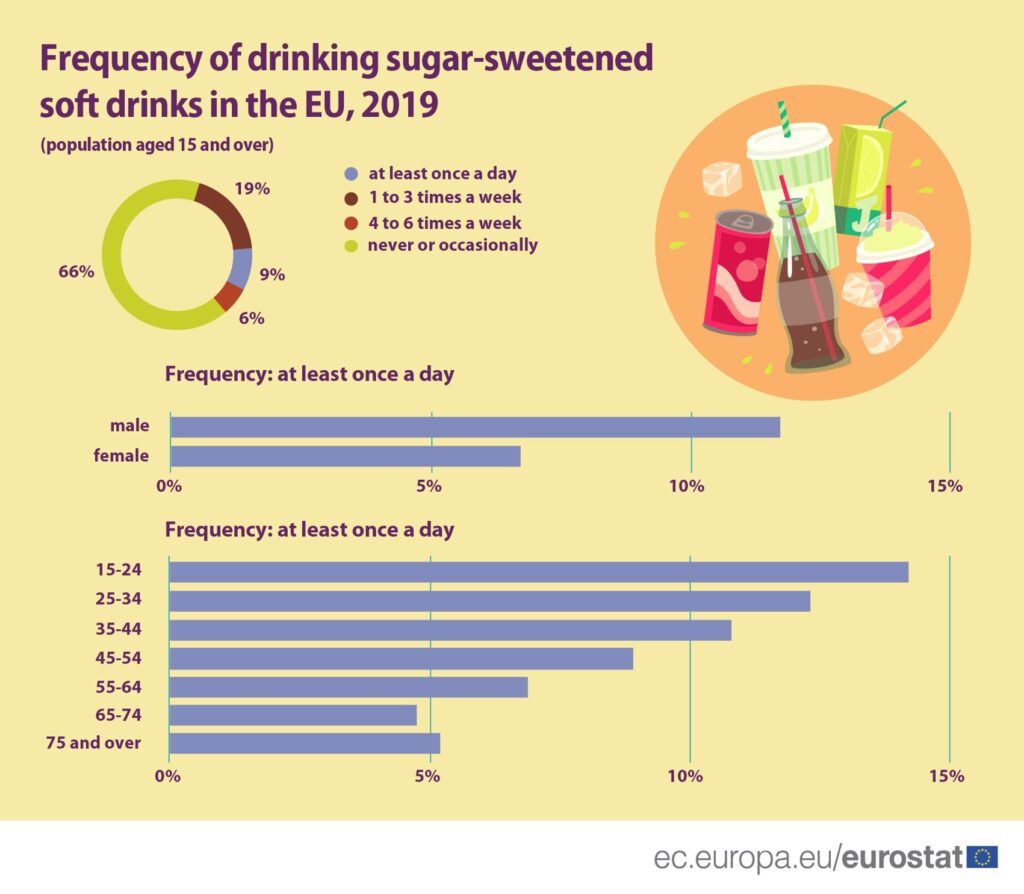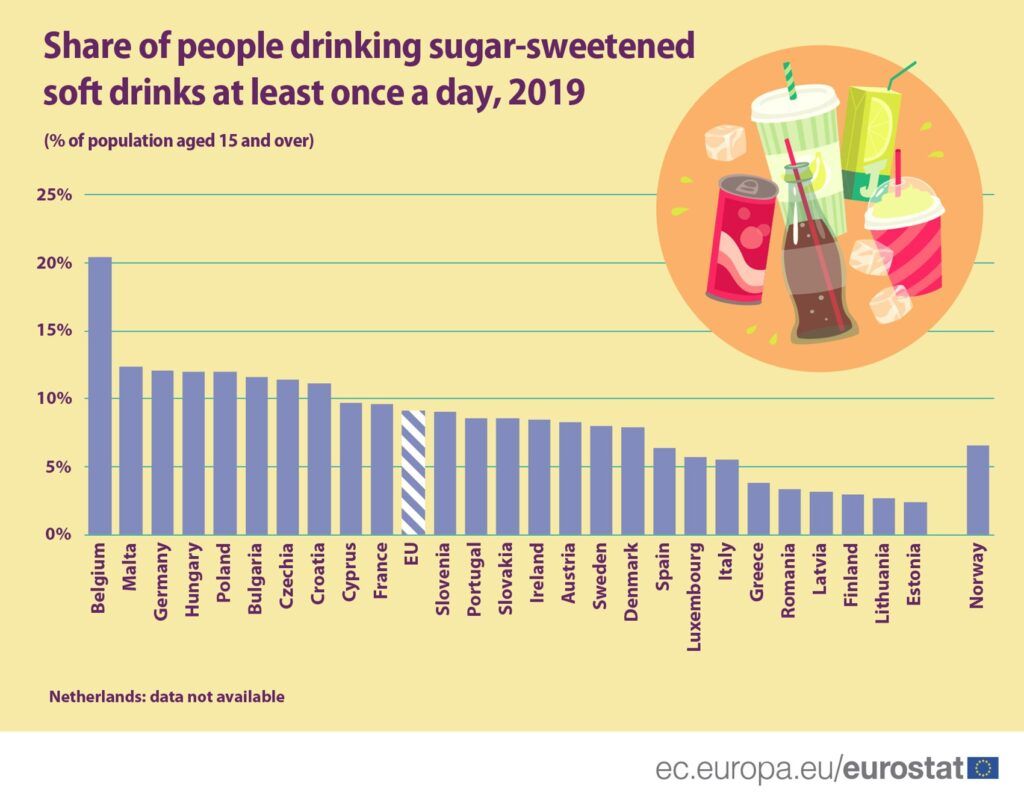In 2019, 9% of people aged 15 and over in the EU drank sugar-sweetened soft drinks daily, while 6% drank such beverages 4-6 times a week and 19% drank these 1-3 times a week.
Daily consumption of sugar-sweetened soft drinks was more common for men than for women (12% of men vs. 7% of women). In addition, the older the age group, the lower the frequency of consumption of these beverages: the highest share was recorded among those aged 15 to 24 (14%), while those aged 65 to 74 and people aged 75 and over had the lowest shares (around 5%).
Share of people drinking sugar-sweetened soft drinks daily: highest in Belgium, lowest in Estonia
Among the EU Member States, the share of people who reported that they drank sugar-sweetened soft drinks at least once a day was highest in Belgium (20%), followed by Malta, Germany, Hungary, Poland and Bulgaria (all around 12%).
In contrast, the lowest share was recorded in Estonia (2%), followed by Lithuania, Finland, Latvia and Romania (all around 3%).
More information









Leave a Reply